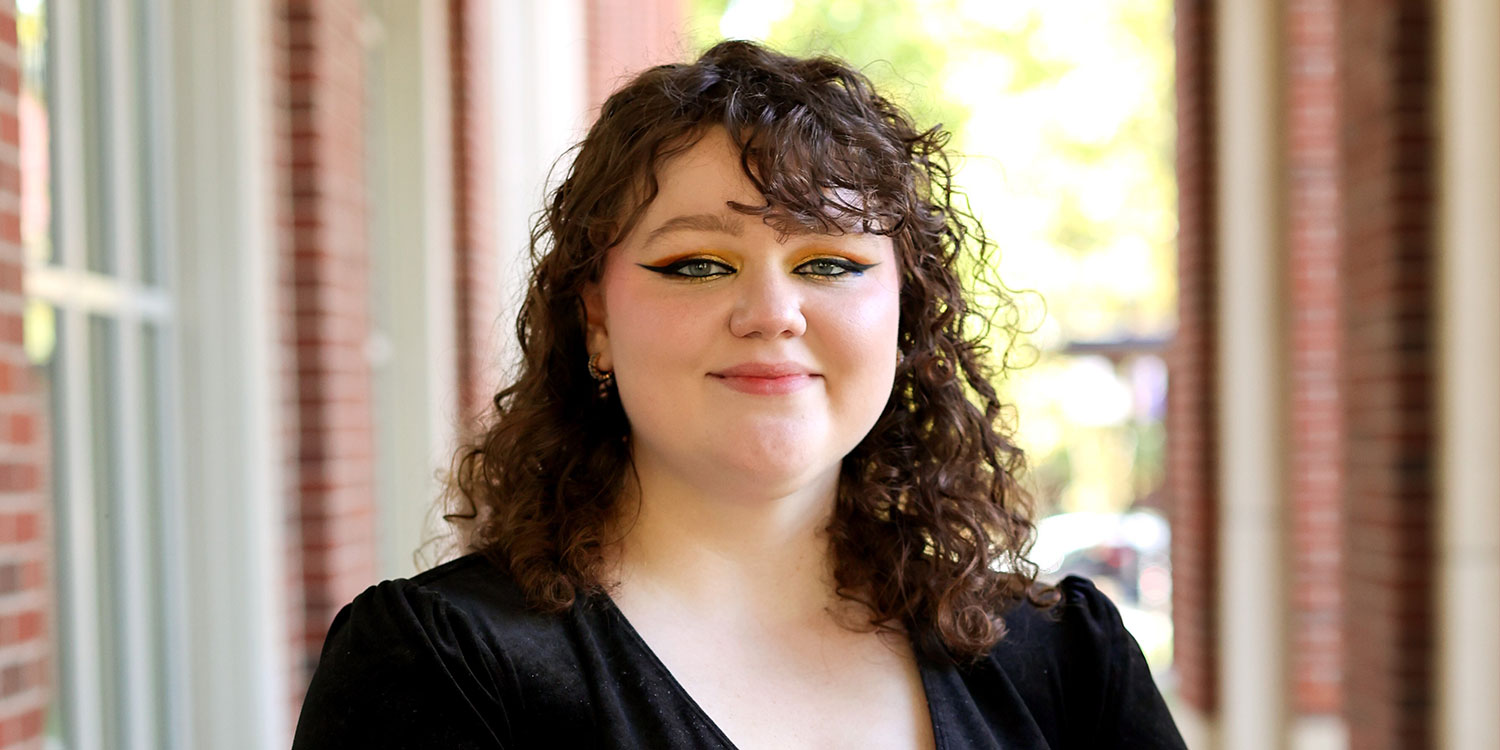When Isabelle Hanning ’26, history and literature major, walks across Capital campus, she often thinks about the stories hidden in the same halls and classrooms students pass through every day. This past summer, Hanning uncovered one such story that connects Capital directly to two of the most defining struggles of the 20th century: WWII and the civil rights movement.
Her Summer Scholars project, From Buchenwald to Montgomery: The Ripple Effects of Compassion in Social Justice Leadership at Capital University, examined the life of Karl H. Hertz, a Capital alumnus and professor whose wartime experiences shaped not only his worldview but also that of his students, most notably Robert Graetz, a Lutheran pastor who played a critical role in the Montgomery bus boycott.
Hanning’s research began with a simple question: Did Karl H. Hertz’s experiences liberating the Buchenwald concentration camp influence the way he taught Robert Graetz about civil rights?
Her findings suggest the answer is yes.
A Life Changed by War
Karl H. Hertz enrolled at Capital in 1939, drawn by its Lutheran identity and strong German language program. He majored in the social sciences, but his education was interrupted in 1942 when he joined the U.S. Army. Serving as a translator and medic, Hertz participated in D-Day operations and was eventually assigned to the 120th Evacuation Hospital. On April 16, 1945, just days after the camp’s liberation, Hertz entered Buchenwald. There he provided aid to survivors of the Holocaust, an experience that left a lifelong mark.
“Hertz saw oppression face-to-face,” Hanning explained. “That experience shaped how he understood compassion, justice, and the responsibility to act against discrimination.”
Hertz recorded his memories in his book Buchenwald and Beyond, now housed in Capital’s archives. His wartime reflections also survive in a series of letters exchanged with Capital librarian Dorothea Conrad, who maintained correspondence with students serving overseas.
Teaching Compassion in the Classroom
After the war, Hertz completed his master’s degree at the University of Chicago before returning to Capital as a sociology professor. It was here that he taught a young student named Robert Graetz.
Graetz, originally a German major, enrolled in Hertz’s class in the early 1940s. Hertz frequently drew on his wartime experiences, assigning students projects on Jewish discrimination and antisemitism. Graetz later credited this assignment as a turning point in his life, inspiring him to shift his focus to social sciences and to dedicate his ministry to fighting racial injustice.
“Hertz’s lesson about Jewish discrimination sparked Graetz to study the discrimination of Black Americans in higher education,” Hanning said. “That one classroom assignment changed the trajectory of his life.”
From Capital to Montgomery
After seminary, Graetz was called to serve as pastor of Trinity Lutheran Church, a Black congregation in Montgomery, Alabama. In 1955, Rosa Parks’ arrest launched the Montgomery bus boycott, and Graetz quickly became one of the few white leaders involved in the movement.
Despite threats, harassment, and even bombings of his home, Graetz remained committed. He worked closely with Martin Luther King Jr. and other leaders, organizing and speaking at rallies. His presence as a white ally in a segregated city made him both a target and a symbol.
“None of that would have happened without that class at Capital,” Hanning said. “And Hertz wouldn’t have taught the way he did without what he saw at Buchenwald.”
Lessons for Today
For Hanning, uncovering this connection between Hertz and Graetz was more than just a research project, it was a reminder of the power of education and mentorship.
“This story shows how a single professor and a single assignment can change the course of history,” she said. “Education sparks ideas, and those ideas ripple outward in ways we can’t always see in the moment.”
As she prepares for her own future, planning to pursue a master’s in library science, law school, and ultimately a career as a law librarian, Hanning says she carries with her both the lessons of her research and the mentorship she has received at Capital.
“I think about savoring the relationships I’ve built here,” she said. “Hertz probably didn’t realize he changed Graetz’s life. But he did. And I know one here at Capital has or is going to change mine too.”
To learn more about Summer Scholars at Capital, visit https://www.capital.edu/academics/experiential-learning/undergraduate-research/summer-scholars-program/.
